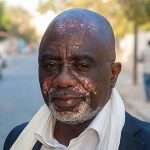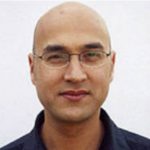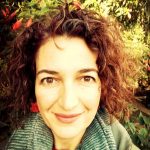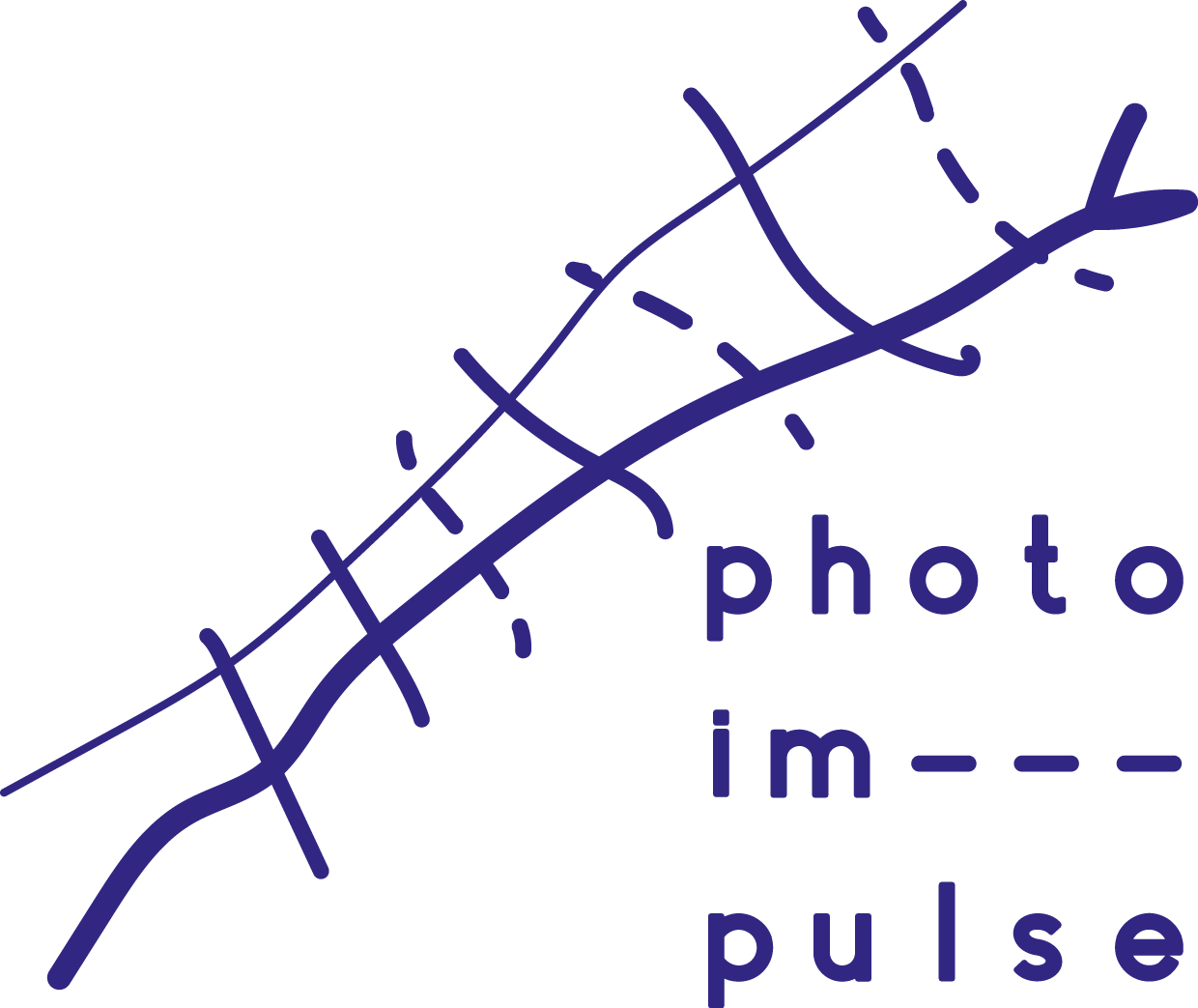Webinar series
Oct. 13, 27
Nov. 10, 24
Dec. 7
PROGRAM
Wednesday, 13th October 15:30
Races and their places: metropolitan and colonial orders in Portugal and the Portuguese Empire
by Richard Cleminson
respondent Fernando Cascais
> in english
Wednesday, 27th October 14:30
Ombres et images-écrans de la colonisation
by Joseph Tonda
respondent Soraya Vasconcelos
> en français
Wednesday, 10th November 14:30
How should photographs be? Some thoughts on categories, assumptions and theories
by Elizabeth Edwards
respondent Margarida Medeiros
> in english
Wednesday, 24th November 14:30
Photographic Affordances: [Re:]Entanglements in a Colonial Ethnographic Archive
by Paul Basu
respondent Teresa Mendes Flores
> in english
Wednesday,7th December 14:30
Passados com presente: o projeto ECHOES e as descobertas que nos trazem as historias de vida em cidades entrelaçadas pela historia colonial
by Lorena Sancho Querol
respondent Helena Elias, com o projeto “Everywhere, eLsewhere, SomewherE (ELSE): Experiments in decolonizing education”
> em português
————————————————————————————————————————————————————————————————–
SUMARIES AND BIOS
Races and their places: metropolitan and colonial orders in Portugal and the Portuguese Empire – WATCH ONLINE
Wednesday, 13th October 15: 30
In this exploratory discussion, I will analyse how the racial dimensions of the Portuguese in the metropole and of the indigenous in the Empire intersected in complex ways primarily in the first half of the twentieth century. The paper will serve to deconstruct categories of centre and periphery, racial “purity” and the internal/external aspects of empire. A number of case studies will be highlighted, including the attempt to locate the “true” Portuguese in the centre of Portugal by means of biotypology, the pure and loyal Portuguese of Timor, the role of blood science in identifying different races and the role of the mestiço in upholding or threatening the values of the Portuguese Empire.
 RICHARD CLEMINSON is Professor of Hispanic Studies at the University of Leeds, United Kingdom. He has published on the history of sexuality in Iberia, concentrating on the history of eugenics, homosexuality and themes related to the labour movement. His most recent publications include Catholicism, race and empire: Eugenics in Portugal, 1900-1950 (Budapest/New York, 2014) and Anarchism and eugenics: An unlikely convergence (Manchester, 2019). Currently, he is working on a history of anticolonialism in Portugal between 1900 and 1940 and has published on this topic: “Anarchism and anticolonialism in Portugal (1919-1926): Mário Domingues, A Batalha and black internationalism”, in Journal of Iberian and Latin American Studies, 25(3), 2019, pp. 441-465.
RICHARD CLEMINSON is Professor of Hispanic Studies at the University of Leeds, United Kingdom. He has published on the history of sexuality in Iberia, concentrating on the history of eugenics, homosexuality and themes related to the labour movement. His most recent publications include Catholicism, race and empire: Eugenics in Portugal, 1900-1950 (Budapest/New York, 2014) and Anarchism and eugenics: An unlikely convergence (Manchester, 2019). Currently, he is working on a history of anticolonialism in Portugal between 1900 and 1940 and has published on this topic: “Anarchism and anticolonialism in Portugal (1919-1926): Mário Domingues, A Batalha and black internationalism”, in Journal of Iberian and Latin American Studies, 25(3), 2019, pp. 441-465.
.
Ombres et images-écrans de la colonisation – WATCH ONLINE
Wednesday, 27th October 14:30
La « rencontre coloniale » n’eut pas lieu entre humains. Ce sont des ombres et des images-écrans qui se retrouvèrent sur un non-lieu, une chimère connue sous le nom de « continent noir ». Car sur ce continent de nulle part, ombres et images-écrans furent des monstres dont l’activité contre-nature prit le nom de civilisation et de progrès.
 JOSEPH TONDA is professor of sociology and anthropology at Omar Bongo University in Libreville, Gabon. He is notably the author of The Modern Sovereign: The Body of Power in Central Africa (Congo, Gabon) [Karthala 2005] and L’Impérialisme Postcolonial – Critique de la Société des Éblouissements [Karthala 2015] and most recently Afrodystopie: La Vie dans le Rêve D’Autrui [Karthala 2021]. He is also a literary writer and has published Chiens de Foudre (ODEM, Libreville 2013, out of print) and Tuée-tuée Mon Amour (LA DOXA éditions, Paris, 2017).
JOSEPH TONDA is professor of sociology and anthropology at Omar Bongo University in Libreville, Gabon. He is notably the author of The Modern Sovereign: The Body of Power in Central Africa (Congo, Gabon) [Karthala 2005] and L’Impérialisme Postcolonial – Critique de la Société des Éblouissements [Karthala 2015] and most recently Afrodystopie: La Vie dans le Rêve D’Autrui [Karthala 2021]. He is also a literary writer and has published Chiens de Foudre (ODEM, Libreville 2013, out of print) and Tuée-tuée Mon Amour (LA DOXA éditions, Paris, 2017).
.
How should photographs be? Some thoughts on categories, assumptions and theories
Wednesday, 10th November 14:30
In this paper, I explore the challenges located at the intersection of telling the past, especially the colonial past, and the wider field of ‘global’ photographic studies. What passes for history and what passes for photographic meaning are deeply embedded in sets of guiding principles. Taking historiographical inspiration from Dipesh Chakrabarty’s now-classic concept of a provincialized Europe, I argue that to work with colonial photographs, we need to question these epistemic assumptions and open our analytical language to other possibilities.
 ELIZABETH EDWARDS is a visual and historical anthropologist and is currently Andrew W. Mellon Professor at the Victoria and Albert Museum Research Institute, London. She is Professor Emerita of Photographic History at De Montfort University, Leicester. She is also Honorary Professor in the Department of Anthropology University College London. She has worked extensively on the relationship between photography, history and anthropology. Until 2005 she was Curator of Photographs at Pitt Rivers Museum and lecturer in visual anthropology at ISCA, University of Oxford, where she is a Curator Emerita and Research Affiliate. She is on the advisory boards of the Kunsthistorisches Institut (Max Planck Gesellschaft) in Florence and the National Science and Media Museum (Science Museum Group) in Bradford. She was elected a Fellow of the British Academy in 2015. Her monographs and edited works include Anthropology and Photography (1992), Raw Histories (2001), Photographs Objects Histories (2004), Sensible Objects (2006) and The Camera as Historian: Amateur Photographers and Historical Imagination 1885-1912 (2012), and, over the years, over 90 essays in books, journals and exhibition catalogues on topics as diverse as photography and evolutionary theory and photography and sound.
ELIZABETH EDWARDS is a visual and historical anthropologist and is currently Andrew W. Mellon Professor at the Victoria and Albert Museum Research Institute, London. She is Professor Emerita of Photographic History at De Montfort University, Leicester. She is also Honorary Professor in the Department of Anthropology University College London. She has worked extensively on the relationship between photography, history and anthropology. Until 2005 she was Curator of Photographs at Pitt Rivers Museum and lecturer in visual anthropology at ISCA, University of Oxford, where she is a Curator Emerita and Research Affiliate. She is on the advisory boards of the Kunsthistorisches Institut (Max Planck Gesellschaft) in Florence and the National Science and Media Museum (Science Museum Group) in Bradford. She was elected a Fellow of the British Academy in 2015. Her monographs and edited works include Anthropology and Photography (1992), Raw Histories (2001), Photographs Objects Histories (2004), Sensible Objects (2006) and The Camera as Historian: Amateur Photographers and Historical Imagination 1885-1912 (2012), and, over the years, over 90 essays in books, journals and exhibition catalogues on topics as diverse as photography and evolutionary theory and photography and sound.
Photographic Affordances: [Re:]Entanglements in a Colonial Ethnographic Archive
Wednesday, 24th November 14:30
In this presentation Paul Basu will draw upon the work of the Museum Affordances / [Re:]Entanglements project to address questions posed by the New Epistemologies of Vision seminar: how do we produce knowledge from the colonial archive, how do we ask new questions and bring new communities into the discussion. Over the past 4 years [Re:]Entanglements has been interrogating the archival legacies of a series of anthropological surveys led by the British colonial anthropologist Northcote Thomas. Between 1909 and 1915, Thomas made four tours as ‘Government Anthropologist’ in the British West African protectorates of Southern Nigeria and Sierra Leone. He made thousands of photographs, as well as making sound recordings and collecting ethnographic and botanical specimens. A key part of this work has been to work with different communities including people in the locations where the photographs were taken, those with looser diasporic connections to the regions and contemporary Nigerian and Sierra Leonean artists, to explore this colonial archive and its ‘decolonial affordances’. The project exhibition, [Re:]Entanglements: Colonial Collections in Decolonial Times is currently on display at the Museum of Archaeology and Anthropology, Cambridge.
 PAUL BASU is an anthropologist, curator and filmmaker. Until recently Professor of Anthropology at the School of Oriental & African Studies, London, his work has focused on the relationships between material culture, migration and memory. For many years he has conducted multi-sited fieldwork across archives, museums, diasporas and localities, especially relating to British colonial entanglements in West Africa. His chapter ‘Re-mobilising colonial collections in decolonial times’ was recently published in the open access book Mobile Museums. His own books include The Inbetweenness of Things; Museums, Heritage and International Development (with Wayne Modest); and Exhibition Experiments (with Sharon Macdonald).
PAUL BASU is an anthropologist, curator and filmmaker. Until recently Professor of Anthropology at the School of Oriental & African Studies, London, his work has focused on the relationships between material culture, migration and memory. For many years he has conducted multi-sited fieldwork across archives, museums, diasporas and localities, especially relating to British colonial entanglements in West Africa. His chapter ‘Re-mobilising colonial collections in decolonial times’ was recently published in the open access book Mobile Museums. His own books include The Inbetweenness of Things; Museums, Heritage and International Development (with Wayne Modest); and Exhibition Experiments (with Sharon Macdonald).
.
Passados com presente: o projeto ECHOES e as descobertas que nos trazem as historias de vida em cidades entrelaçadas pela historia colonial
Tuesday, 7th December, 14:30
ECHOES aborda um dilema urgente para a Europa contemporânea: o facto de que, embora a história dos impérios e do colonialismo constitua um passado europeu compartilhado, esse passado permanece estranhamente silenciado nas narrativas oficiais sobre a “herança” europeia. ECHOES defende que a UE necessita urgentemente, não apenas de reconhecer este dilema, mas também de o incluir de forma critica, reflexiva e coletiva no centro da sua identidade. O reconhecimento plural e polissémico do patrimônio colonial torna-se ainda mais necessária à medida que a UE opera em contextos, relações e geografias cada vez mais globais, onde seu “deficit” contínuo para aceitar o colonialismo como parte da história europeia colide com o “excedente” palpável do colonialismo. Com base na experiência de uma equipe internacional de académicos/as, ECHOES explora um conjunto de ações culturais e criativas comprometidas com o legado colonial – em cidades europeias e não europeias ainda imbuídas de múltiplos traços do passado colonial – para identificar novas práticas patrimoniais coletivas. Através da diplomacia científica colaborativa entre cidades e da criação de novos vínculos e parcerias com artistas, museus e grupos cívicos, o projeto promove novos diálogos interculturais com base em entendimentos descoloniais das relações coloniais. O GT4 ‘Cidades Entrelaçadas’, explora fenómenos relacionados com o património cultural em cidades ligadas por uma história colonial partilhada. O par Rio de Janeiro-Lisboa ajuda-nos a perceber a incontornável relação entre passado e histórias coloniais, paisagens urbanas contemporâneas, memória social e debates públicos em torno de narrativas, de objetos e de espaços que têm materializado essa relação ao longo do tempo até hoje.
http://projectechoes.eu/
https://echoes.ces.uc.pt/
 LORENA SANCHO QUEROL is a researcher in Social Museology at the Center for Social Studies, University of Coimbra (CES-UC), and Professor at the Masters in Cultural Heritage and Museology (FLUC-UC). PhD in Museology under the project “Celebration of Coastal Culture” (PT0019/EEA-GRANTS, 2007-09) and Post Doctorate in Participatory Management in Museums at CES-UC. Among the latest projects carried out, the following stand out: “SoMus: Society at the Museum” (2014-2019), where the identification, analysis and systematization of innovative practices of “cultural participation” allowed the definition of new models of participatory management in 4 European museums; “Creative Tourism Destination Development in Small Cities and Rural Areas”, CREATOUR (P-2020) where she joined the coordinating team to develop the first national network of destinations and creative tourism projects, helping to implement good collaborative practices; “European Colonial Heritage Modalities in Entangled Cities” (ECHOES), H-2020 where she coordinated with Paulo Peixoto the CES team between 2018 and 2021 within the scope of WP4 on cities intertwined by colonial history and, more specifically, a comparative study on practices of decolonial education in national museums in Brazil and Portugal. https://www.ces.uc.pt/pt/ces/pessoas/investigadoras-es/lorena-sancho-querol
LORENA SANCHO QUEROL is a researcher in Social Museology at the Center for Social Studies, University of Coimbra (CES-UC), and Professor at the Masters in Cultural Heritage and Museology (FLUC-UC). PhD in Museology under the project “Celebration of Coastal Culture” (PT0019/EEA-GRANTS, 2007-09) and Post Doctorate in Participatory Management in Museums at CES-UC. Among the latest projects carried out, the following stand out: “SoMus: Society at the Museum” (2014-2019), where the identification, analysis and systematization of innovative practices of “cultural participation” allowed the definition of new models of participatory management in 4 European museums; “Creative Tourism Destination Development in Small Cities and Rural Areas”, CREATOUR (P-2020) where she joined the coordinating team to develop the first national network of destinations and creative tourism projects, helping to implement good collaborative practices; “European Colonial Heritage Modalities in Entangled Cities” (ECHOES), H-2020 where she coordinated with Paulo Peixoto the CES team between 2018 and 2021 within the scope of WP4 on cities intertwined by colonial history and, more specifically, a comparative study on practices of decolonial education in national museums in Brazil and Portugal. https://www.ces.uc.pt/pt/ces/pessoas/investigadoras-es/lorena-sancho-querol
Last publications include: (2020) “On Ruralities and Resistances: The new management model of Pusol School Museum (Spain) and the challenges of reciprocal participation between museum and society”. Museum Management and Curatorship, 1-27. (2020) “Os desafios da participação cidadã nos processos de inventariação do património cultural imaterial: os casos de Brasil e Portugal”, Intersecções, v. 22, n.1 (2020), 21-51. “Invisibilized Heritage”. In: Andersen, Casper; Timm Knudsen, Britta; Kølvraa, Christoffer (Ed.) Anthology exploring the keywords of colonial heritage.
http://keywordsechoes.com/

